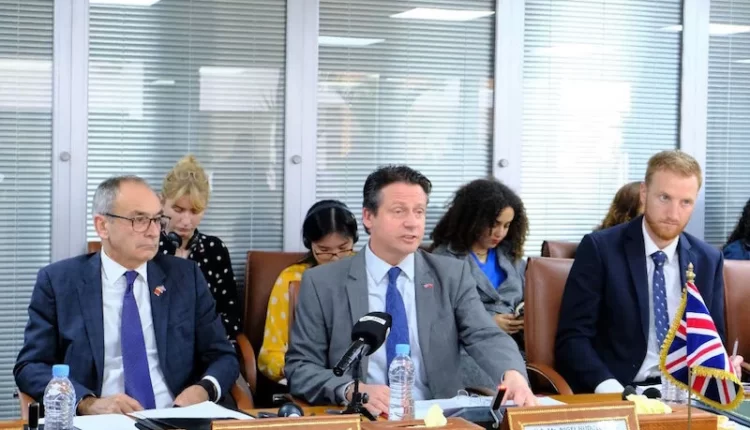Following Brexit, trade between Morocco and the UK significantly increased, reaching 22.9 billion dirhams in bilateral trade volume in 2017.
A press release from the Moroccan-British Partnership Council’s second session, which took place on Thursday, stated that trade increased by about 50% from 15.3 billion dirhams in 2019 to 22.9 billion dirhams in 2018.
According to the statement, the agreement that the two nations signed after Britain left the European Union and that became effective in January 2021 allowed for the strengthening of the economic partnership.
These statistics follow the second meeting of the Moroccan-British Partnership Council, which was presided over by Riad Mazour, Minister of Industry and Trade, and Nigel Huddleston, Secretary of State at the British Ministry of Business and Trade, who is currently in Morocco on an official visit.
The two sides reaffirmed their friendship and cooperation on the basis of a strategy that benefits both parties and encourages the growth of trade and cross-border investments.
A delegation from the British embassy in Rabat met with the British minister while he was meeting with several Moroccan ministers. He also spoke with a number of British businessmen about ways to attract investment to Morocco.
The Moroccan-British Partnership Council meeting, according to Nigel Huddleston, is a crucial step in boosting bilateral trade and investment flows between the two countries and advancing sectoral cooperation, particularly in the areas of renewable energy, infrastructure, agriculture, and tourism.
Read Also:Othman Benjelloun, chosen “Best African Personality” 2022
Given the enormous potential anticipated in the energy sector, Britain has expressed a strong interest in investing in Morocco, particularly in promising fields, particularly hydrogen and green electrons.
As Nigel Huddleston noted, Morocco has seven British schools and one university, and it is growing in popularity among families seeking to provide their children with an Anglo-Saxon education. Britain wants to be more present in the fields of education and health care.


